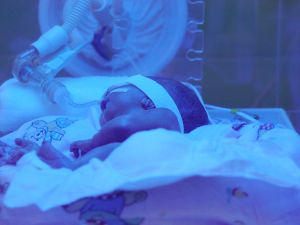If you or a loved one has been injured by a doctor or hospital, Call the Medical Malpractice Crisis Resource Line for Immediate Help >
Free Consultation. Call Now. (516) 394-4200
(516) 394-4200

The first plaintiff’s witness has been called in a prominent medical malpractice case in Texas. According to a report by the Times-News, the jury and judge began hearing testimony earlier this month. The case involves a medical malpractice suit against a surgeon at the University of Texas Health Science Center of Houston.
Evidently, a 35-year-old woman came into the emergency room after experiencing severe abdominal pain. During preparation for surgery, the staff discovered that she was about three weeks pregnant. An appendectomy was then performed, and the woman was released. When the woman was about 23 weeks pregnant, she again began experiencing abdominal pain. When she arrived at the emergency room, she was diagnosed with appendicitis, again, since part of her appendix was not removed during the first surgery. As a result of the recurrent appendicitis episodes and surgeries, her daughter was born four months prematurely.
The patient, her husband, and her daughter are bringing a suit against the doctor, claiming that he was negligent and did not comply with reasonable standards that other doctors in his position would have. The doctor is claiming that due to her pregnancy he was not able to safely take out her entire appendix, and he used his best judgment. The case is still being heard, and a decision has not been rendered as of yet.
Expert Witness Standard Used in New York
Generally, there are one of two tests that are used to determine the validity of an expert’s testimony, either the Daubert or Frye standard. In New York, the courts follow the Frye standard because Daubert has not been accepted by New York courts. The Frye standard explains the requirements that an expert witness must meet.
The Frye standard allows an expert to testify as an expert if his or her testimony relies on established and accepted scientific methods. This is more lenient than the Daubert standard, which requires a more in-depth look at the expert’s qualifications and the effect that his or her testimony will have on the trier of fact. It is important to know the difference between these two standards because if an accident victim chooses to bring the case in federal court, the standard that is applied is the Daubert standard. This means that the expert’s testimony is more likely to be thrown out in federal court if he or she is relying on new or novel theories that are not yet accepted by others in his or her field. It is important to consult an attorney to determine what court a case should be brought in.
Have You Been Injured as a Result of Medical Malpractice?
All negligence cases have the risk of being complicated, but medical malpractice cases can be particularly difficult to navigate. As was mentioned above, there are many strategic decisions that need to be made when bringing these types of suits. And these cases take a significant amount of preparation, research, and skill. Furthermore, these cases not only require individuals to deal with the defendant but can also encompass dealings with the organizations they work with and even insurance companies. To help increase your chances of success, contact one the dedicated and skilled attorneys at the Duffy Law Firm. You may be entitled to monetary compensation for the injuries that you incurred as a result of the negligent actions. Contact our office at (516) 394-4200 to schedule a free initial consultation.
See Other Blog Posts:
New York Nursing Home Successfully Sued for $2 Million After Negligent Care Led to Stage-IV Bedsore, Long Island Injury Lawyers Blog, September 29, 2014.
“Special Knowledge” Jury Instruction Required Reversal of Verdict in Plaintiff’s Favor, Long Island Injury Lawyers Blog, September 29, 2014.
No. Our injury cases are handled on a contingent retainer. You pay nothing upfront, and we recover attorney’s fees only if your litigation is successful. We don’t bill by the hour. You don’t need to worry about running up a large attorney’s bill before you see any recovery for your injuries.
Yes. Our firm is dedicated to creating a strong relationship with our clients, beginning with keeping your information and consultation confidential.
Each case we encounter is carefully screened and evidence scrutinized to make sure the claim is meritorious and may be successful at trial. We will perform an investigation, and then our partners make a final decision on whether to take on a case.